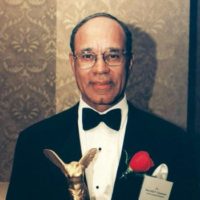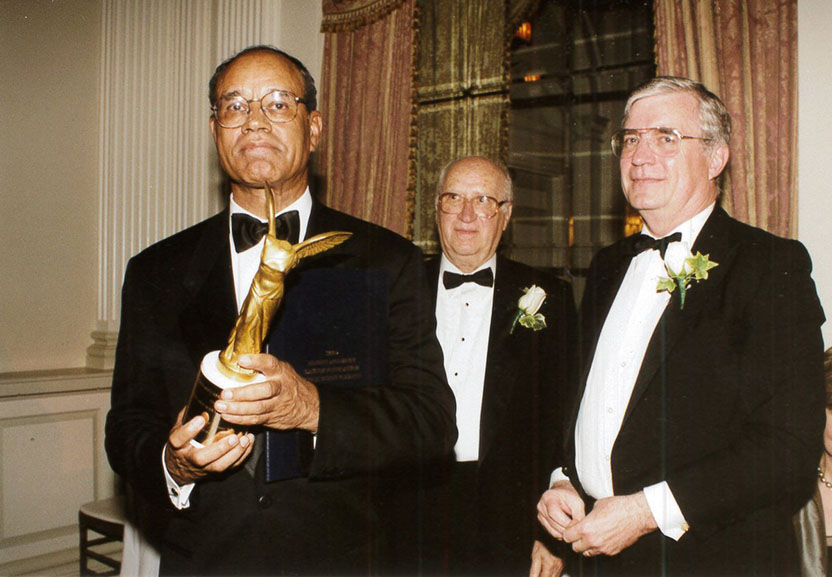
Harold P. Freeman
North General Hospital
For enlightening scientists and the public about the relationship between race, poverty, and cancer.
When Harold Freeman began his medical career in the 1970s, bias and discrimination against minorities were especially common in health care where basic primary care was severely lacking for people of color and generally unavailable in the poorest communities. Medical research on the health problems of African-Americans, particularly African-American women, lagged significantly behind that of white Americans. African-Americans experienced higher morbidity and mortality rates than their white counterparts in nearly every category of disease.
Dr. Freeman’s life work has been to address these injustices and to ensure that all people receive the best possible care, regardless of their color or income. Born and educated in Washington, D.C., he recognized early in his career that African-Americans are more frequently diagnosed with cancer and have higher mortality rates than whites. He accepted these realities as a personal challenge, waging a lifelong war on cancer among our poorest citizens.

Harold Freeman, Daniel Koshland, James Fordyce
Throughout an illustrious career filled with important leadership positions, many coveted awards and the recognition of the National Academy of Sciences and the Institute of Medicine, Dr. Freeman never deterred from his mission or his commitment to people in need in at-risk communities. As director of surgery at Harlem Hospital Center, he was one of the first medical professionals to talk to his patients about cancer prevention, stressing the importance of diet, regular exercise, and non-smoking. He introduced screening exams for breast and colon cancer into the Harlem community, and in 1979 opened a free breast cancer center in Harlem. As president of the American Cancer Society, he became the nation’s leading educator and authority on the interrelationship between race, poverty and cancer. He was the principal architect of the Society’s initiative on cancer among the poor. He traveled the country teaching cancer prevention in impoverished neighborhoods. He lectured the medical community on the consequences of limited access to health care and the lack of health insurance as barriers to screening and treatment. Dr. Freeman carried his vision and message to the highest levels, advising and enlightening the members of the President’s Cancer Panel in his role as chairman since 1991.
In his current position as president and chief executive officer of North General Hospital, Dr. Freeman continues to challenge leaders in health care and medical research to broaden their understanding and their approach to human disease by considering factors other than biology. His research has repeatedly identified socioeconomic factors, cultural practices, environmental exposures and the manner in which blacks are treated in predominantly white institutions as contributing factors to incidence of disease and premature death. In an explosive report in 1990, Dr. Freeman starkly portrayed the disparity in life expectancy between African-American and white men.
Dr. Freeman has shifted the paradigm for understanding disease in poor communities and among minority populations. Caring for the voiceless in our society, Dr. Freeman’s humanitarian efforts have increased survival rates for thousands of people. Uncommon zeal in the pursuit of his goal, devotion to patients, and a diplomatic, sensitive approach to change characterize his advocacy. Dr. Freeman exemplifies the highest qualities of a public servant on behalf of the underserved.
Listen to Harold Freeman on Dial an Idol, a podcast from the Lasker Foundation
In this episode, Kwabena Kusi-Mensah, a child psychiatrist from Ghana, meets one of his scientific heroes: Harold Freeman. Early in his career, Harold Freeman recognized that poor Black Americans were disproportionately dying from cancer. He made it his mission to change that.
Click here to hear more episodes of Dial an Idol.
